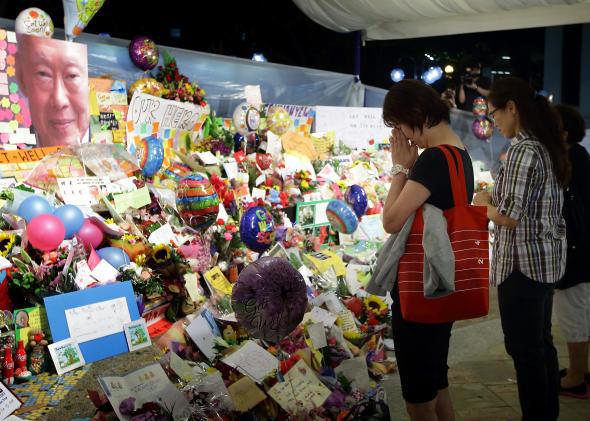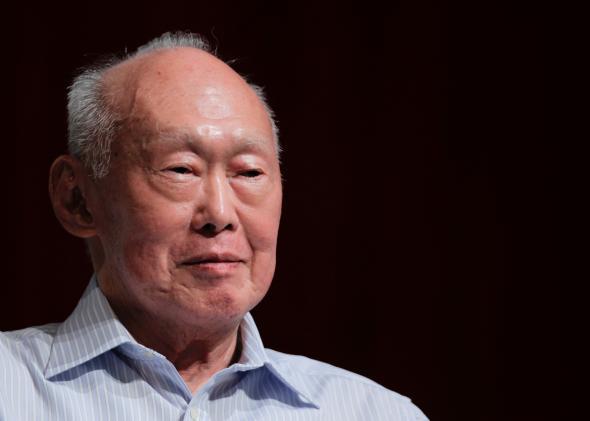Singapore has launched a seven-day period of national mourning that will end March 29 with a state funeral for Lee Kuan Yew, the country’s first prime minister who is credited with changing Singapore from a forgotten British colonial outpost into an economic powerhouse. Lee had been in hospital since February 5 and died early morning Monday. Lee’s son and current prime minister, Lee Hsien Loong, announced the news, which led to tributes from leaders around the world. “I’m grieved beyond words at the passing of Mr Lee Kuan Yew,” the president said in a televised address. “I know we all feel the same way.”
President Obama described Lee, who ruled Singapore for 31 years as “a true giant of history,” reports the BBC. The Chinese foreign ministry, meanwhile, called him “a uniquely influential statesman in Asia.”
Just as he was praised and respected for the role he played in helping Singapore prosper, Lee was also harshly criticized for what many described as an authoritarian grip on power. The country’s economic well-being was the priority, regardless of whether that meant curtailing free speech and political opposition in a style of government that many often described as patronizing. “The result was a tidy, law-abiding country, but one that visitors often described as regimented, sterile and dull,” notes the Washington Post. “Some Singaporeans complained that the avowedly ‘paternalistic’ government treated them like children, forbidding private citizens to own home satellite dishes, fining and humiliating people caught failing to flush public toilets, and even imposing a nationwide ban on chewing gum.”
“Lee Kuan Yew’s tremendous role in Singapore’s economic development is beyond doubt, but it also came at a significant cost for human rights,” said Phil Robertson of Human Rights Watch, according to the Wall Street Journal. “Today’s restricted freedom of expression, self-censorship and stunted multiparty democracy is also a part of his legacy that Singapore now needs to overcome.”
Lee, however, often insisted the limits he imposed on civil liberties were necessary in order to make sure that a “multi-ethnic and multi-religious country” remained stable, points out the Guardian. Lee remained a powerful figure even after stepping down as prime minister in 1990, staying on as senior minister and then “minister mentor” only to leave the cabinet in 2011 due to his declining health.
“No-one is quite sure what direction Singapore will now take without him,” notes the BBC’s Jonathan Head.

Photo by Suhaimi Abdullah/Getty Images
